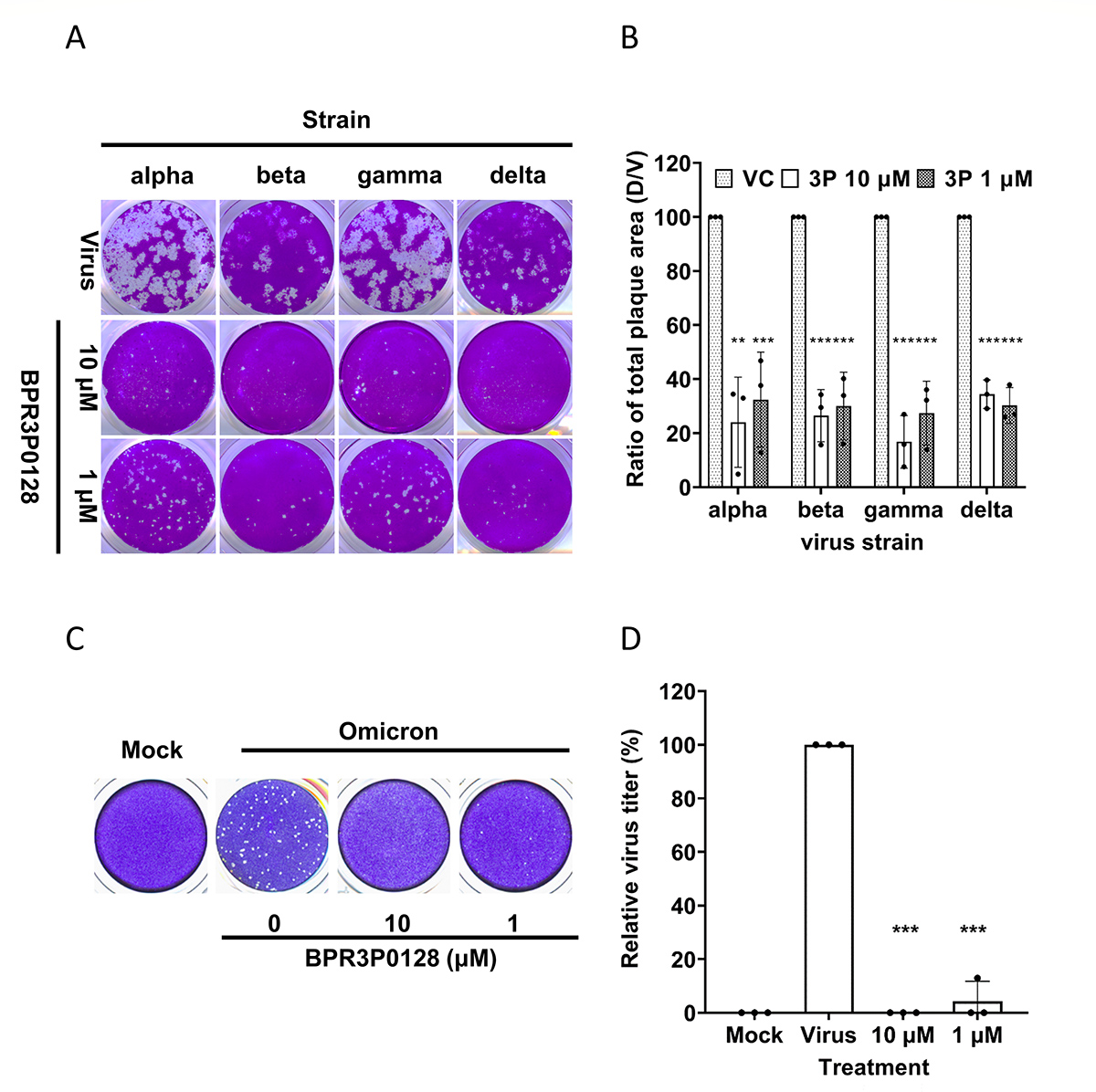
 中央研究院 生物化學研究所
中央研究院 生物化學研究所
Viral RNA-dependent RNA polymerase (RdRp), a highly conserved molecule in RNA viruses, has recently emerged as a promising drug target for broad-acting inhibitors. Through a Vero E6-based anti-cytopathic effect assay, we found that BPR3P0128, which incorporates a quinoline core similar to hydroxychloroquine, outperformed the adenosine analog remdesivir in inhibiting RdRp activity (EC50 = 0.66 µM and 3 µM, respectively). BPR3P0128 demonstrated broad-spectrum activity against various severe acute respiratory syndrome coronavirus 2 (SARS-CoV-2) variants of concern. When introduced after viral adsorption, BPR3P0128 significantly decreased SARS-CoV-2 replication; however, it did not affect the early entry stage, as evidenced by a time-of-drug-addition assay. This suggests that BPR3P0128's primary action takes place during viral replication. We also found that BPR3P0128 effectively reduced the expression of proinflammatory cytokines in human lung epithelial Calu-3 cells infected with SARS-CoV-2. Molecular docking analysis showed that BPR3P0128 targets the RdRp channel, inhibiting substrate entry, which implies it operates differently-but complementary-with remdesivir. Utilizing an optimized cell-based minigenome RdRp reporter assay, we confirmed that BPR3P0128 exhibited potent inhibitory activity. However, an enzyme-based RdRp assay employing purified recombinant nsp12/nsp7/nsp8 failed to corroborate this inhibitory activity. This suggests that BPR3P0128 may inhibit activity by targeting host-related RdRp-associated factors. Moreover, we discovered that a combination of BPR3P0128 and remdesivir had a synergistic effect-a result likely due to both drugs interacting with separate domains of the RdRp. This novel synergy between the two drugs reinforces the potential clinical value of the BPR3P0128-remdesivir combination in combating various SARS-CoV-2 variants of concern.
